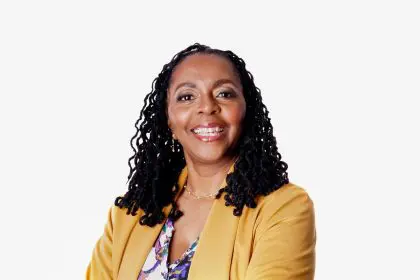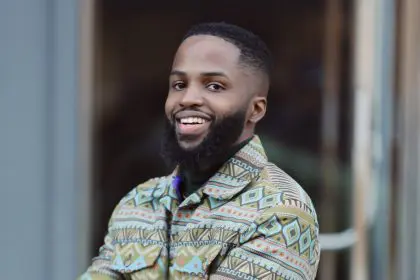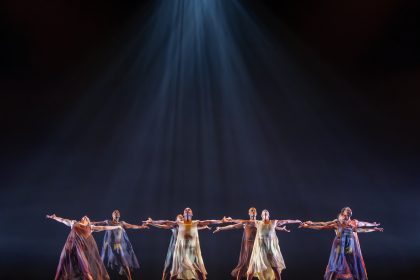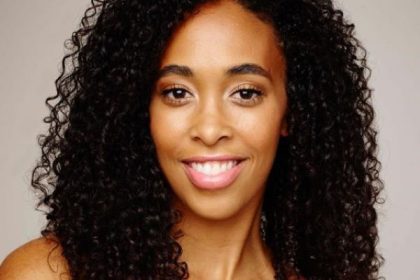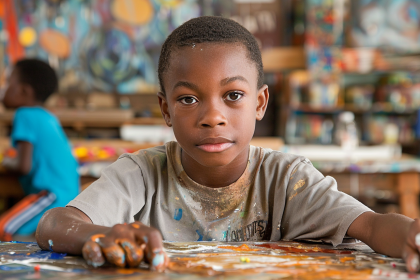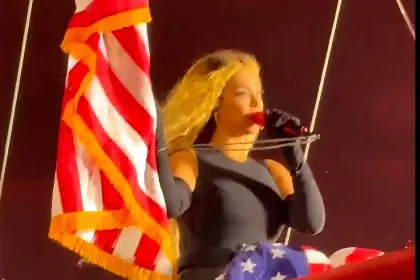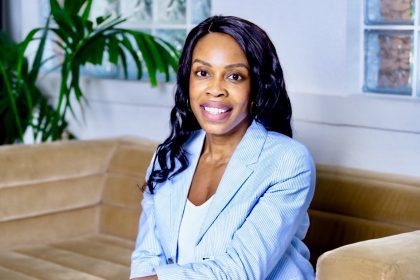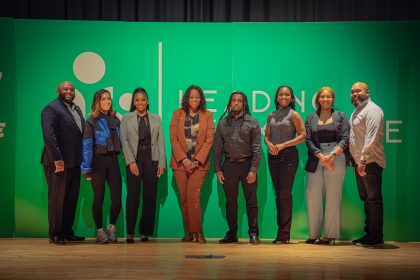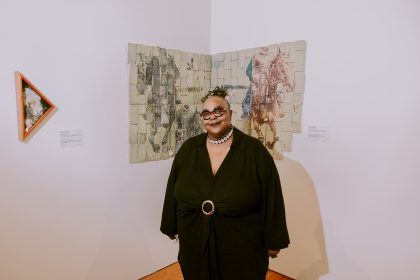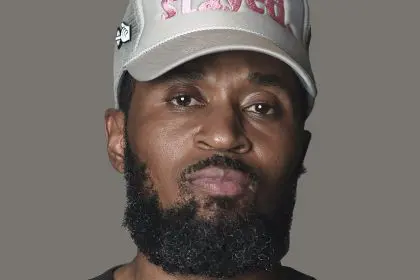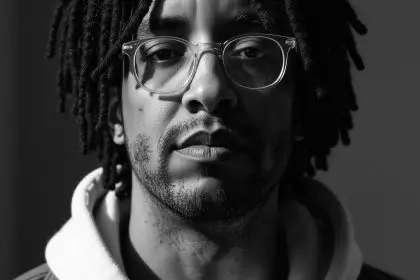
Jai McClendon Jones is an award-winning visionary leader making significant impact in Atlanta’s arts community. As founder and Executive Artistic Director of AREA (Atlanta’s Resource for Entertainment & Arts), she has dedicated over two decades to cultivating leadership and excellence through performing arts training and development programs.
Her ethos is simple yet powerful, the arts are a catalyst for personal transformation and leadership. With strategic partnerships with organizations like Alvin Ailey American Dance Theater and Boys & Girls Club of America, Jones has created a legacy of excellence, developing artistically gifted youth and positioning AREA as a cultural beacon for creative empowerment.
Beyond the arts, Jones champions wellness through her brand Bossed Up & Balanced and leads JAIWrks, a dynamic dance fitness program designed to help individuals find balance, strength, and joy through movement. With a BS Degree in Business and extensive arts training, she seamlessly merges creativity, leadership, and business strategy to develop confident changemakers.
How do you define the value of the arts in shaping the identity of young people and communities?
For me, the arts and wellness aren’t really, truly separate. They are both truly essential tools to shape confident, purpose driven leaders. The arts is not just about being a dancer, or theater artist, or creative artist, whatever you may call it. My work truly centers on empowering youth, to pre-professionals, to adults, to thrive artistically, professionally, and most importantly, holistically. I believe that when we pour into people’s creativity, their emotion, and entrepreneurial growth, just self development, independent growing, we’re building the next generation of change makers. Through AREA, I’ve created this platform that just doesn’t train talent, but we also develop whole individuals equipped to lead, innovate, and be balanced in success, and in their overall well-being.
What inspired you to create AREA Atlanta? And how has your vision evolved since its founding?
I grew up in dance, in the arts, I really didn’t have a choice. My mom had a dance studio, and it was one of the most notable ones here in Atlanta, Georgia, and through her studio I had that opportunity to be exposed to some of the best in dance. We were also housed in what was called the Arts Exchange, here in Atlanta. So it was a melting pot of arts and creativity. I was really blessed to be able to be impacted and cultured and nurtured in a very safe and great space with the arts.
My mom used me as a guinea pig. She wanted to make sure what we were learning was equipped and on par with what was going on in the rest of the world. So I had that opportunity to go and train outside of just her studio, but around Atlanta, with some of the most notable, especially ballet studios, and that really kind of took me in a deeper dive of my love and passion for dance.
I went to Clark Atlanta University with a full honors scholarship, where I had the opportunity to major in business administration with a concentration in marketing while still dancing and doing everything on a professional platform.
I left Atlanta, pursued, and did great things, but I always wanted to come home. I’m homegrown, and so I wanted to make sure if I established anything it will be in my home, and that was Atlanta. That’s how Atlanta’s Resource for Entertainment and Arts was formed, AREA, with our nonprofit vertical, AREA nonprofit, and since then it’s just been totally about making sure to create that holistic space, but also that 360 space that allows for people to come into our doors and feel like their AREA is their space of no limitations.
What are some of the biggest challenges you face in sustaining AREA? And how did you overcome them?
One of the biggest things, oftentimes, that we have to overcome is ourself. Just believing, knowing why you’re doing what you’re doing, because once you decide to make a decision, it’s always not so easy to stick with it. I would say that was one of the biggest things I had to overcome, was just trusting myself and believing in myself, and knowing that I was well equipped.
Then also giving myself grace to make mistakes, to create a strategy, a mission, and vision, but then also to know that that would never change, but those key focuses of thoughts or targets that I had might have to adjust a little bit. Just being a black female in this space, and doing it with a standard of excellence. I’m a woman that’s about, I can meet you on the floor, or I can meet you at the boardroom, when the board tables. And so, being able to translate that it’s not typically oftentimes that you meet someone who’s very skilled and knowledgeable in dance, especially in the elements of classical ballet, or those more concert dance spaces, but then, also, too, can speak quite eloquently.
How did your partnership with Alvin Ailey come about, and what impact has it had on your students and the larger Atlanta Arts community?
Alvin Ailey has always been that guiding light for us in dance. At my mom’s studio I had the opportunity to meet and really witness and be around in a very authentic way, way beyond just seeing them on the stage. Being in those spaces with them also increased my passion and my desires to pursue the arts in a very unique way.
I had the opportunity to meet who I call my sister friend, Miss Lisa Johnson-Willingham, who is the Director of Ailey Extension, and we hit it off immediately. She and I shared that same ethos and that same vision of making sure that we continue to share Mr. Alvin Ailey’s philosophy of giving dance back to the people.
With that relationship with Alvin Ailey, it allows you just to graciously walk through doors, and it’s a high level of respect and standard that comes with that, but guess what? We had to match it, too, because we could not just be sitting there with Alvin Ailey unless we match that same standard. This year we were super excited to celebrate our 10th anniversary with our partnership with Alvin Ailey.
Through our impact, we touched tens of thousands of folks, from ages 6 all the way up to aspiring adults. It’s not just about folks that are just knowledgeable or trained, but we open the door for everybody to try. We’ve also host panel discussions and conversations, and talk backs and meet and greets, even through the pandemic we did not stop our effort.
How do you ensure that AREA remains inclusive, accessible, and relevant for young creatives across Atlanta?
We’re not just training dancers, we’re developing disciplined, confident young people who understand leadership, collaboration, and resilience. Representation matters, it’s very important. So we ensure that we are seen, we’re celebrated, and we are given that same space to share our stories and take ownership of our own narratives and making sure that we demonstrate and show that everyone has that opportunity to form their own unique AREA.
Also, with our pillar of AREA Outreach, extending access and inspiration. We are very intentional about reaching people who may not otherwise have that opportunity to see or feel the arts in that special, unique way. We went all in and around every side of the compass, from the north to the south, to the east, to the west of Atlanta and Metro Atlanta to be very impactful. Outreach is where seeds are planted and confidence begins. We want to make sure that our work is limitless, you can’t quantify it, you can’t just put it in one little bubble, we want to be what we say, our AREA has no limits.
In what ways do you think the arts can serve as a tool for healing and empowerment in underserved communities?
For me the arts is holistic, it truly is, I believe it’s multi-dimensional. You have to be very authentic when you are in a space like I’m in. I can totally tell when a child comes in, if they possibly have a disability, I could tell if they have confidence issues, I can tell if a mom is maybe off balance, I could tell if there’s something else going on that we might need to give a little bit more attention to.
If you’re learning the skill, you also learn how it impacts you, it makes you feel like you are a whole real, rounded person who is a leader, innovator and a person that’s trying to fulfill your purpose in life, because again, we may not be creating today, the next notable dancer for Alvin Ailey, but maybe this same person that’s in this class now has more belief in commitment to themselves, and more self-esteem and more drive.
That’s also another reason where I created what I call now, Bossed Up and Balanced, and this is just this passion project that I developed just outside of the arts. With Bossed Up and Balanced, we have to make sure that women also understand, whether it be an artist, entrepreneurs, moms, leaders, that we have to maintain success without sacrificing ourselves.
What roles does mentorship play in your leadership? And how are you preparing the next generation of artists and leaders?
Mentorship is very important. I had great mentorship growing up myself. One of the beauties of AREA as well is that being homegrown means that we are forming from within and forming out. So as being a mentor, I’m very intentional to make sure that the students that we have also have a connection back to the younger generation. So they come and they exist, they’re teaching artists, they’re learning along the way.
They’re learning how to teach, because if you learn how to teach it, then that can empower and make sure you’re more appreciative of the time, energy and effort that somebody else is giving to you. It teaches you how to be an active listener and learner along the way as well, because if you can teach it, then that means that you can actually actively execute it.
A lot of our staff has been raised in AREA. I lead with respect and not with fear, and with that level of respect, that means you have to also know how, as a leader, to become a listener, know how to sit back and allow somebody else to voice an opinion or give a suggestion, or maybe not just take constructive bad criticism, but be able to take criticism as well, it helps make you be a better person.
The moment I knew AREA was making a real impact was when…
The moment I knew AREA was making a real impact was when immediately when I opened my doors in 2009. Not trying to toot my own horn, but it’s about manifestation, I put good out, and I knew I was ready, I was equipped. So as soon as our doors opened in 2009, folks came in. This was the time when the housing market was going down, it was a bad time of the day with the lay of the land, and so I knew then and there, oh, okay, God, I trust you, and you equip me, and I’m ready. And so I knew that that was my divine call.
If there’s one thing I want every student to walk away with, it’s…
If one thing I would want every student to walk away with is, they are enough, they are equipped, they are ready, they are limitless, they are special, they’re divine. You are enough! Now it’s up to you to define that full person of who you really are. I feel as if we have to be okay with stretching ourselves to our limitations or outside of any limitations to be limitless. So I would just say, maybe you are enough without any limitations, don’t put limitations on yourself.
Five years from now, I hope AREA will be known for…
We would just be known for being a major impact, a change factor or a change maker by way and through the power of the arts, I mean as simple as that.

